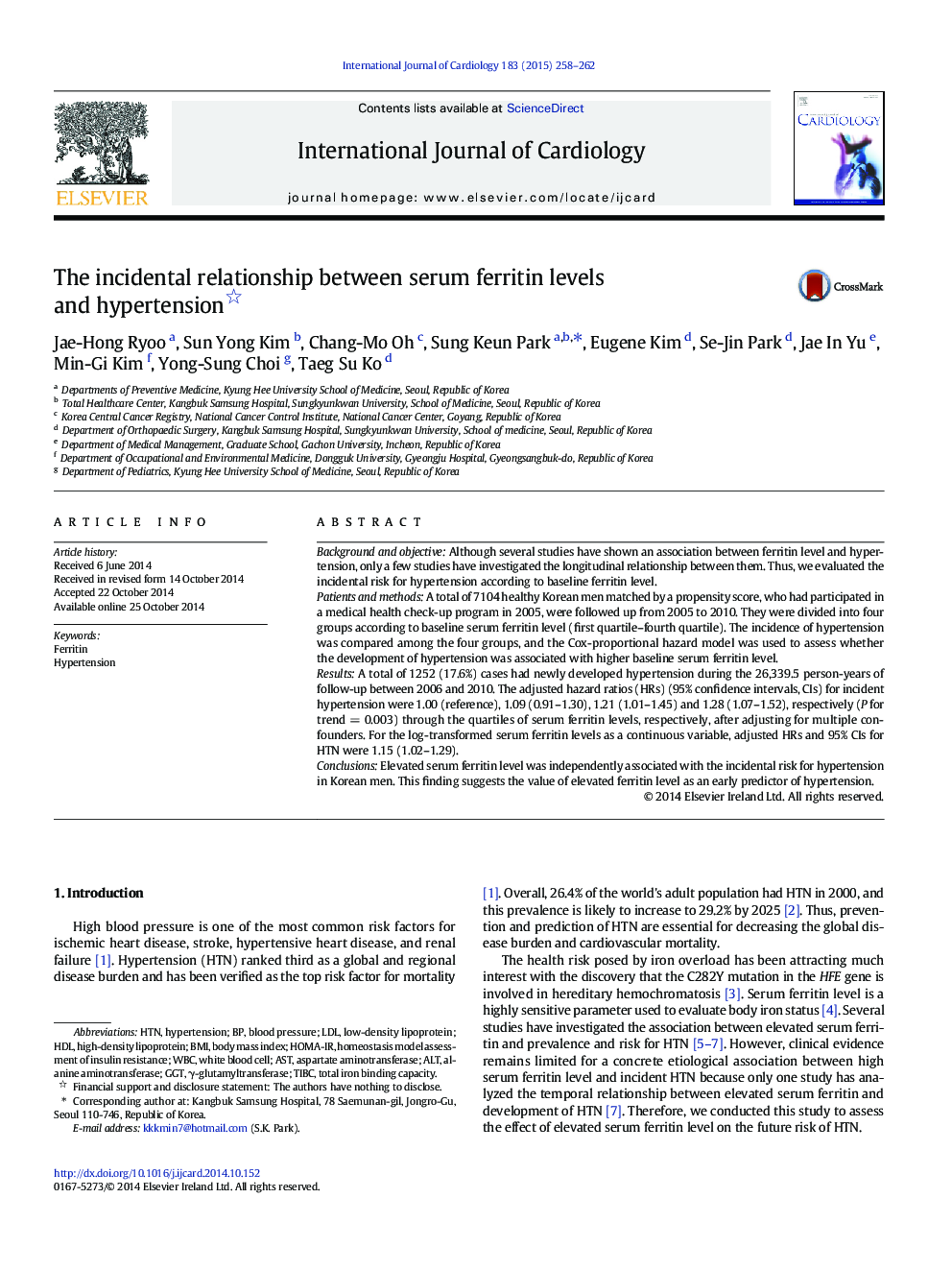| کد مقاله | کد نشریه | سال انتشار | مقاله انگلیسی | نسخه تمام متن |
|---|---|---|---|---|
| 5968219 | 1576169 | 2015 | 5 صفحه PDF | دانلود رایگان |
Background and objectiveAlthough several studies have shown an association between ferritin level and hypertension, only a few studies have investigated the longitudinal relationship between them. Thus, we evaluated the incidental risk for hypertension according to baseline ferritin level.Patients and methodsA total of 7104 healthy Korean men matched by a propensity score, who had participated in a medical health check-up program in 2005, were followed up from 2005 to 2010. They were divided into four groups according to baseline serum ferritin level (first quartile-fourth quartile). The incidence of hypertension was compared among the four groups, and the Cox-proportional hazard model was used to assess whether the development of hypertension was associated with higher baseline serum ferritin level.ResultsA total of 1252 (17.6%) cases had newly developed hypertension during the 26,339.5 person-years of follow-up between 2006 and 2010. The adjusted hazard ratios (HRs) (95% confidence intervals, CIs) for incident hypertension were 1.00 (reference), 1.09 (0.91-1.30), 1.21 (1.01-1.45) and 1.28 (1.07-1.52), respectively (P for trend = 0.003) through the quartiles of serum ferritin levels, respectively, after adjusting for multiple confounders. For the log-transformed serum ferritin levels as a continuous variable, adjusted HRs and 95% CIs for HTN were 1.15 (1.02-1.29).ConclusionsElevated serum ferritin level was independently associated with the incidental risk for hypertension in Korean men. This finding suggests the value of elevated ferritin level as an early predictor of hypertension.
Journal: International Journal of Cardiology - Volume 183, 15 March 2015, Pages 258-262
